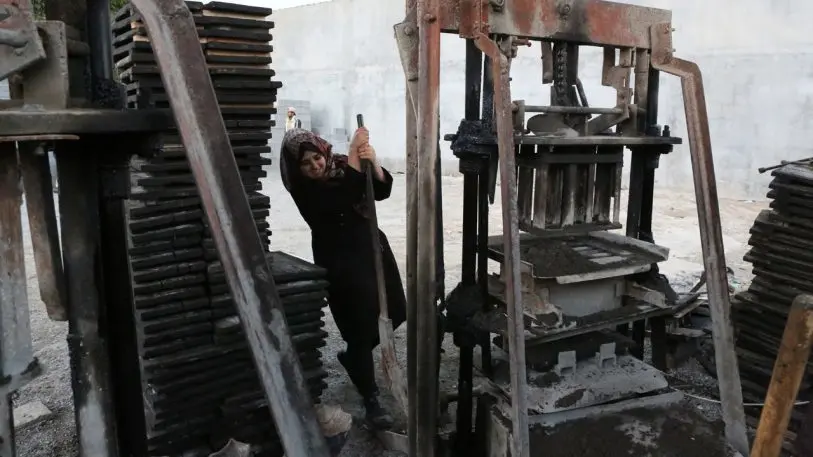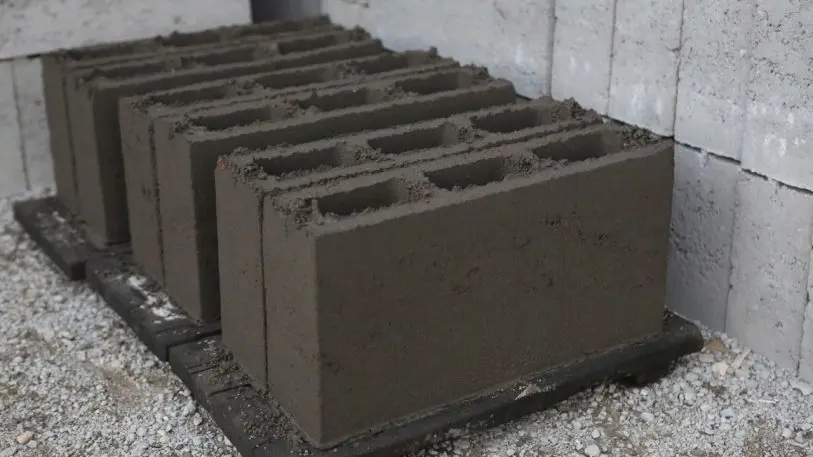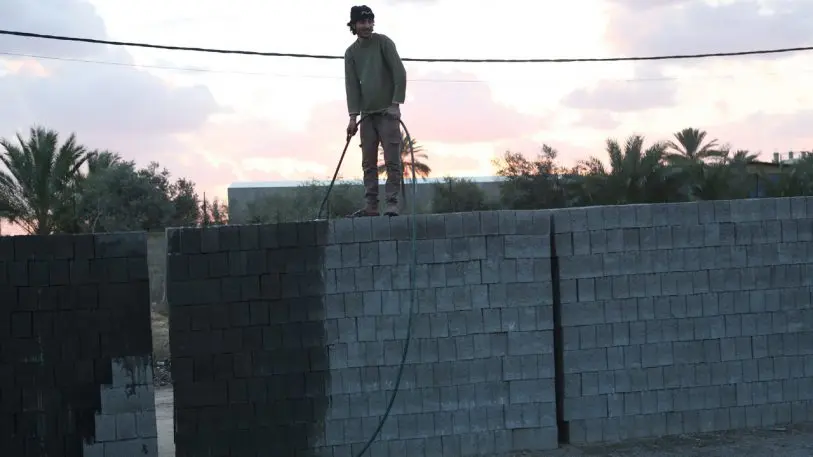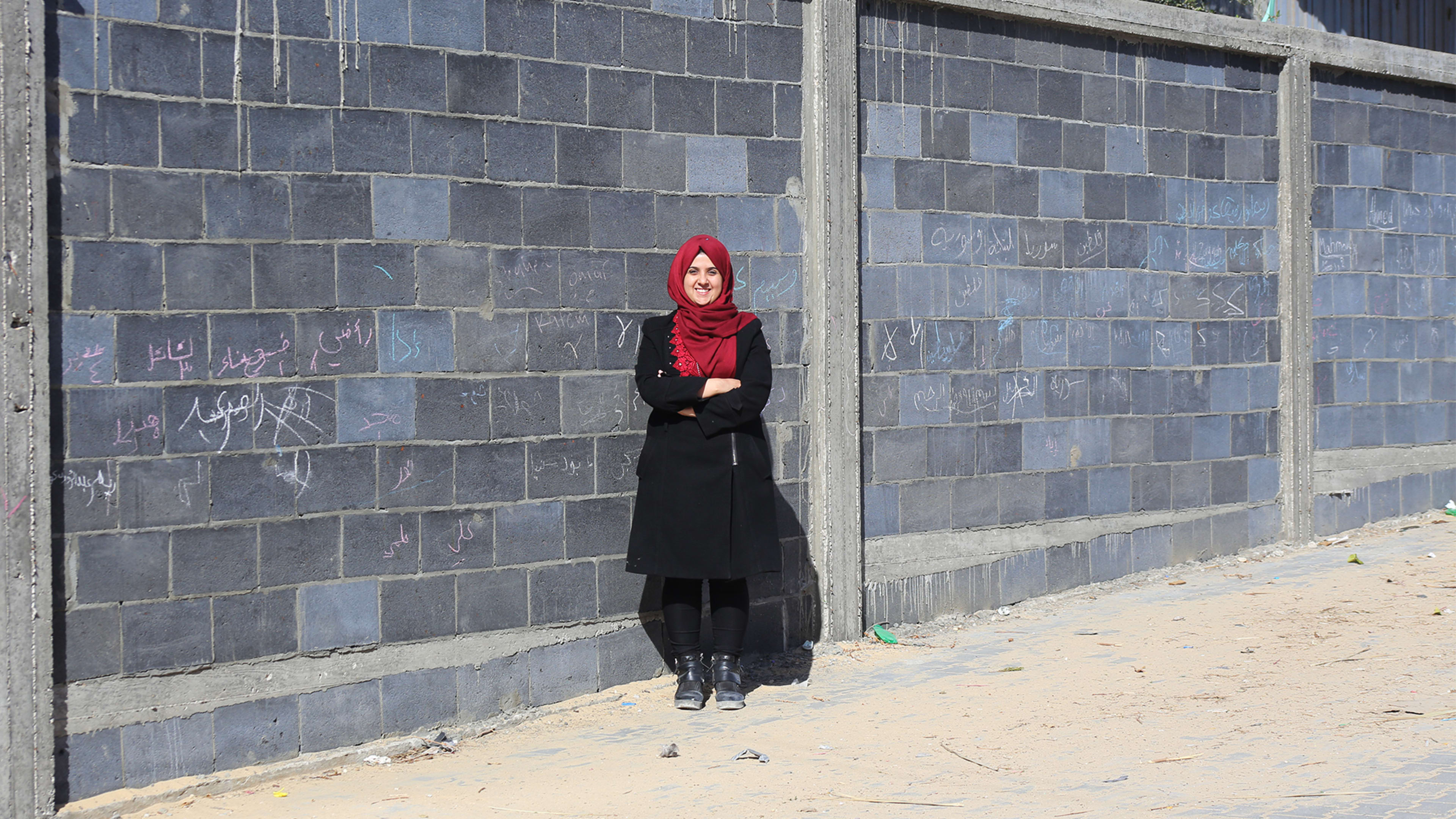Three years after Israeli forces bombed the Gaza Strip–during a 50-day siege that destroyed nearly 18,000 homes and damaged another 153,000–most of those homes have yet to be rebuilt. In part, that’s because Israel drastically limits the amount of building materials that are allowed to cross the border into Gaza. But two Gazan engineering students created another solution: making high-performance bricks out of local waste.
“From 2014 until now in 2017, there are some houses that are still destroyed and their owners cannot get any building materials due to this situation,” says Majd Mashharawi, who created the new product with her fellow student Rawan Abdulatif (Abdulatif is no longer involved in the company). “When I was a student in the fourth year of college I was thinking, ‘How can we put an end to this misery?”
Construction materials were first banned entry into Gaza in 2007 when Israel labeled them “dual use” and argued that they could be used to build bunkers or for other military purposes. Even after the war in 2014, only limited materials have been allowed in, and only a fraction have gone to rebuilding housing. One report estimates that only about a third of the cement needed for reconstruction has made it over the border. The short supply means that even if someone can get materials, they’re expensive. Tens of thousands of people are still displaced or homeless.
https://vimeo.com/221587244
As Mashhawari and Abdulatif considered replacements for cement, they realized that they couldn’t access some chemicals that they wanted, and then started experimenting with different materials for building blocks. One early experiment, which they called “papercrete,” used waste paper instead of sand and aggregate to make blocks. It worked, and helped provide a solution for paper waste; Gaza doesn’t have any recycling systems. But the product was more expensive than ordinary cement. They also experimented with clay blocks but realized that the high temperatures needed for firing the clay used too much energy to be a sustainable solution. Eventually, they started working with another material: ashes from the wood and coal that’s burned locally for energy. Around six tons of ashes typically go to landfills each week.
The design process was challenging, and more than 100 samples failed early tests. “The laboratory I used to test the samples sometimes made fun of me and said, ‘What are you doing? People are going to build houses from garbage, are you serious?'” says Mashharawi. “It was very hard in the beginning.”

The students started to develop the prototype in August 2014, and by early 2015, had a working prototype of what they call GreenCake–blocks made with ash that are cheaper than ordinary cement blocks, and can be made at half the weight (“cake” refers to the fact that the product has an airy structure). The design isn’t the first to incorporate ash in bricks; many other processes use fly ash from coal. But the new design uses a different type of larger-grained ash, and a different process that cures the blocks using steam instead of high-temperature kilns, saving energy.


“I just want to say that if you want something to happen, you can make it possible,” she says. “In the beginning, I didn’t think I would reach this stage today and that I would get all of what I dreamt–that it would be possible even to travel, and to [meet with] people, and get investment. It’s not impossible if you believe in it.”
Recognize your brand’s excellence by applying to this year’s Brands That Matter Awards before the early-rate deadline, May 3.
